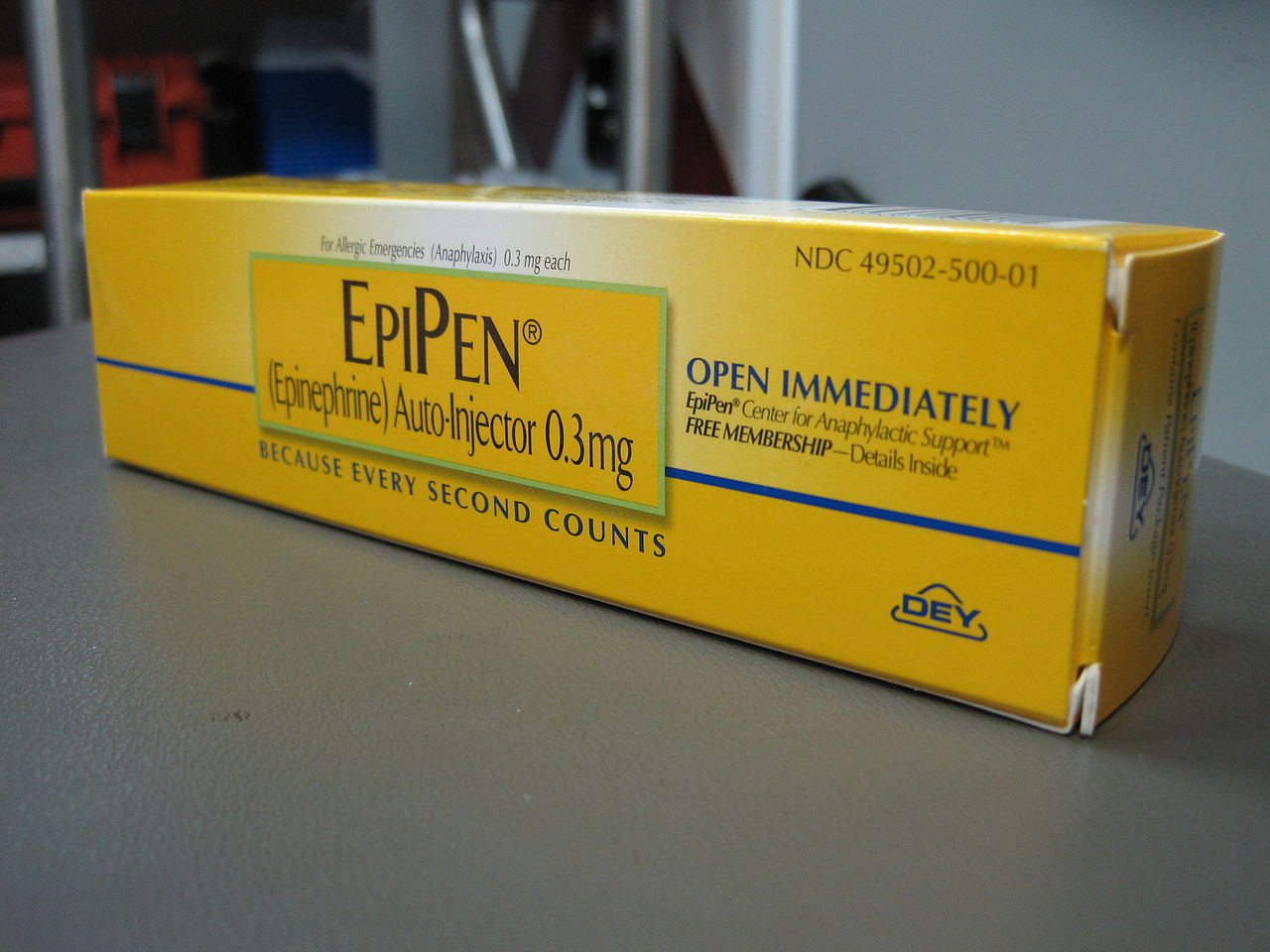This past week’s outrage ensued after media outlets began widely reporting that Mylan Pharmaceutical, the maker of EpiPens, had increased the price of the product by more than 500 percent over the last eight years. The EpiPen, an epinephrine auto-injecting device widely used to combat severe allergic reactions, is widely regarded a necessity for families with children who have severe allergies.
Lawmakers on both sides of the aisle as well as presidential candidate Hillary Clinton have derided Mylan for their decision to charge more than $600 for a two-pack of EpiPens. While insurance companies and coupons offered by Mylan will provide some relief, many families, especially those without insurance, will be forced to make tough decisions in order to protect their children.
The price-gouging behavior of Mylan is rightly being blasted as an example of corporate greed run amok. But Mylan’s decision to raise the price of EpiPens isn’t exactly a surprise. Mylan practically holds a monopoly over the multi-billion-dollar epinephrine auto-injector market. (EpiPen is actually the name of Mylan’s specific product but is so popular that all auto-injectors are commonly referred to as EpiPens, in the same way that lip balm is normally called Chapstick.) So Mylan has acted just as any company would, raising prices at will due to the lack of competition.
But there’s another side to the story of Mylan’s price-gouging than what some on the left would claim is the natural result of a capitalist economy. Rather, this story is an example of how government interference in a free-market economy can lead to disaster for society’s most vulnerable people, and enable corporate greed in a way a competitive market wouldn’t.
The drug epinephrine (the medicine that actually works to combat a severe allergic reaction, or anaphylaxis) is a cheap drug, and auto-injectors have been around since the 1970s. Such characteristics should have made it easy for a number of pharmaceutical companies to enter the market for epinephrine auto-injectors and produce cheap, generic versions of the EpiPen.
Yet over time Mylan came to dominate the market, and numerous would-be competitors found it impossible to meet standards set forth by the FDA for the auto-injector device. Many regard the standards for drug delivery devices such as asthma inhalers and auto-injectors to be unclear, and the Sanofi Pharmaceutical Company was pressured to withdraw its version of the EpiPen from the market in 2015 after only a handful of incorrect doses were administered from their devices.
This February, the Food and Drug Administration rejected an application from a generic rival to the EpiPen from a company called Teva. Then in June, another potential rival to Mylan was forced by the FDA to expand patient trials and reliability studies. Mylan increased the price of EpiPens after each of these companies failed to get their product past the FDA.
Importantly, all throughout the eight-year period of price increases, Mylan spent millions of dollars lobbying Congress and donating to campaigns across the country. Another cause for concern comes from the fact that Mylan’s CEO, Heather Bresch, is the daughter of West Virginia Democratic Sen. Joe Manchin.
With all of this information, it becomes important to ask the question about how much influence Mylan has had over the regulatory and law-making processes that governed the market it is now dominating. Were FDA standards for product-testing and rules governing drug-delivery devices the result of an over-active regulatory system influenced by the very companies it sought to regulate?
What becomes clear is a basic truth: increasingly complex government oversight and price-gouging from the firms that dominate their markets go hand-in-hand. Not only are large, powerful companies such as Mylan able to influence the rules that govern their markets, but they have the resources to navigate complex bureaucracies and regulations. This combination makes the kind of free-market competition that could create real competition and keep prices low impossible.
In this instance, those feeling the pain will be society’s most vulnerable. And there is a strong case that the government holds a great deal of responsibility for that pain.
Sam Wallace is a public policy graduate student. He can be reached at samhwallace@gmail.com.



